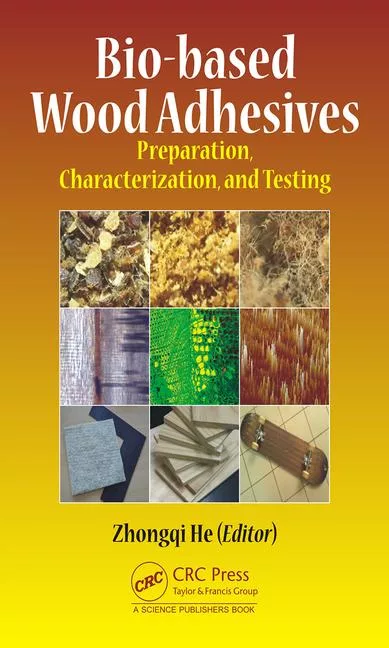Focus On
Iowa Company Creates Low-Cost Soy Adhesive for Engineered Wood Industry

In cooperation with ISPB, Heartland Resource Technologies (HRT), Oelwein, IA, has developed a low-cost soy-based adhesive product that replaces traditional resins used in engineered wood products manufacturing. In addition to lower costs, it uses an environmentally friendly, renewable resource. Up to 50% of a traditional resin can be replaced with the lower cost HRT product and produce boards of comparable physical properties and assembly times. Heartland anticipates using upwards of one million bushels annually by its fifth year of production.
Frank S. Trocino and Dr. James Wescott, chairman and chief technology officer, respectively, are leading HRT's research efforts in conjunction with the USDA's Forest Product Laboratories (FPL) in Madison, WI. "We have successfully demonstrated this concept in oriented strand board, particleboard, plywood and molded products," Wescott said. "Traditional soy-based adhesives were greatly limited by pot lives, low solids, slow press times and poor water resistance. HRT has significantly improved upon previous limitations.
"Heartland Resource Technologies has been developing an alternative resin system utilizing renewable, low-cost soybean flour since late 1999," Wescott said. "The initial research project was introduced to Heartland by the Food Science Department at ISU. We worked closely with the university for two years in an effort to bring alternative resins to market. In October of 2002, Heartland moved its development and commercialization efforts to the FPL for advanced technical analysis and optimization."
The forest products business is a commodity industry faced with fluctuating costs, low margins and growing environmental concerns. Since soybeans are a locally grown, controlled, and annually renewable product, it is geographically desirable, reliable and plentiful. "Soybeans are one of the largest cash crops in the U.S. and are grown in regions throughout the Midwest and the South. This fits well with HRT's commercialization plans to manufacture our products in both of these areas," said Trocino.
Up to 70% of the ingredients in Heartland's products are processed soybean meal. Small producers can process it inexpensively and easily. As a result, Heartland is able to replace a significantly more expensive and volatile priced phenol with a stable and less expensively priced soybean meal. Dr. Wescott said, "Heartland's process for making the adhesives is simple, and, once delivered to the mills, represents little if any impact on the customer."
Heartland's adhesive technology has been met with tremendous enthusiasm by the industry. Credited as the only company "doing anything truly different in alternative resins and the use of soy" by an industry leader in engineered wood panel manufacturing speaks volumes about HRT's success. Unlike other opportunities, new adhesive product technologies that are introduced into the forest products industry face relatively few barriers to commercialization. In an industry actively searching for alternative resins, meeting basic criteria of cost and performance are the only things that stand between the producer and the customer. Heartland has established strong relationships with four of the industry's leaders in panel manufacturing, two agricultural fiber product producers, and one chemical and adhesives manufacturer.
In addition to protein-based adhesive for wood panels, HRT has performed research in markets including soy preservatives for structural wood panels, soy/urea formaldehydes and soy/isocyanates for agricultural fiber panels and cabinetry. Heartland has international patents pending on its current technologies.
For more information:
For more information, contact Jay Sfingi, chief operating officer, at (208) 471-0220; or Frank Trocino, chief executive officer, at (515) 229-9786.Looking for a reprint of this article?
From high-res PDFs to custom plaques, order your copy today!





